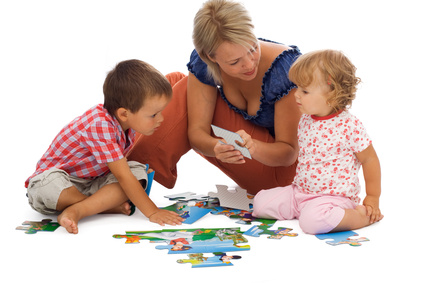Beware When Playing With Your Children
I love my memories of playing Barbie, Frisbee, badminton (not a pretty sight I must admit), board games, and many more games with my children. These play activities allowed us to bond with one another. They gave us the opportunity to grow more intimate, to laugh together, and to learn from one another. That being said, playing with our children presents some dangers in today’s world. Let me explain.
 Some parents want to be their children’s best friend. As their children’s best friend, they intrude into every aspect of their children’s life and remain physically present in every corner of their children’s life. They smudge their fingerprint onto every activity, every game, and every relationship in their children’s life. As a result, their children never learn from other trusted adults or other children; they never develop a life of their own.
Some parents want to be their children’s best friend. As their children’s best friend, they intrude into every aspect of their children’s life and remain physically present in every corner of their children’s life. They smudge their fingerprint onto every activity, every game, and every relationship in their children’s life. As a result, their children never learn from other trusted adults or other children; they never develop a life of their own.- Some parents believe they must keep their children constantly entertained. They will do anything to keep their children happy and active. They hate to see a look of boredom cross their children’s face. So they manage their children’s every waking hour, scheduling an endless cycle of activity. When no outside activity is available, they orchestrate an activity of their own to keep their children busy. Their children never learn how to schedule their own time. They never learn how to entertain themselves.
- Some parents take over the activity. Stating a desire to teach their children, these parents simply take over. You know, the child begins a video game but the parent jumps in to show them how to do it. Next thing you know, the child sits idly by while the parent plays the game. Or the parent jumps in to show them the “proper way” to clean the table or complete the math problem on their homework…and the child merely watches. Unfortunately, this parent has sent a subtle message that the child is incompetent and incapable.
- Some parents get caught up in worry about their children’s safety and become over-protective. As a result, this parent limits their children’s play. No activities that might result in injury are allowed. No wandering too far from home. No possibility of failure. These parents teach their children that the world is not a safe place and mistakes are bad. The children come to believe a person cannot recover from failures. As a result, these children limit their activities and their exploration. They avoid risk and challenge. They miss the opportunity for success that healthy risk-taking can promote.
How can a parent avoid these dangers? Put these four ideas into practice.
- A parent’s job is more than play. Children benefit from parents who play with them. However, children also need parents who discipline and teach. Teach your children appropriate behavior. Teach them how to entertain themselves. Teach them to manage their time. Teach them to creatively seek out activities independently.
- Children do not need constant entertaining. It is okay to experience boredom. In fact, boredom may pave the way to curious exploration and creative discovery. At the very least, boredom teaches children that they are responsible for their own entertainment and fun.
- Let your children take some risks. I don’t mean to let them jump off skyscrapers. But, let them take some age appropriate, healthy risks. Remember, healthy risks can lead to great learning and success. Allow your children to make mistakes and experience failures. The best learning often occurs in that moment of failure.
- Allow older siblings and other adults the opportunity to supervise your children and their activities. Children can learn a lot from other adults. Sometimes they will learn more easily from other adults than they do from their parents. So let your children get involved with other trusted adults. And, let older siblings watch children. The older sibling can learn responsibility and takes the role of mentor more seriously when parents allow them to influence their younger sibling more directly.
Yes, playing with your children carries some risk. Don’t get lost in overprotecting, intruding, managing, or entertaining. Instead, remember to teach, allow some boredom, encourage healthy risks, and provide opportunities to learn from other mature adults.